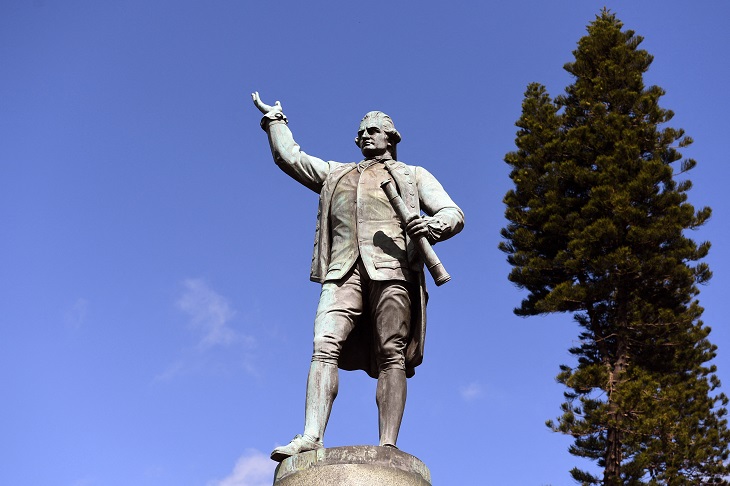This year, on 29 April, it was 253 years since Captain James Cook landed at Botany Bay. Despite the obvious significance of that day, it barely, if ever, rates a mention.
Thanks to the collapse of our education system, many Australians think Cook was part of the First Fleet that arrived eighteen years later, on January 26. Many therefore erroneously associate Cook with Australia Day.
Despite this astonishing manifestation of popular ignorance, our education system does almost nothing to rectify these common misunderstandings.
The Australian Curriculum, Assessment and Reporting Authority (ACARA), the statutory authority with responsibility for developing and implementing the National Curriculum, apparently agrees that the study of our nation’s history is important, even mandating it for Year 9 students. Despite this requirement, a name search of the National Curriculum for ‘Captain Cook’ generates just one result – for year four students. And that’s after students have already been indoctrinated with the concept of ‘invasion’ in grade three.
Why has Cook been ‘cancelled’ in our schools?
Captain James Cook’s contribution to civilisation cannot be underestimated. He was beyond question one of the greatest navigators in history, a self-taught product of the Enlightenment, and a naval officer whose concern for his crew saw him complete hazardous voyages without losing a single man to scurvy. A brilliant cartographer, many of his maps were still being reliably used in the 20th century.
Significantly, Cook displayed a genuine and generous concern for the Indigenous peoples he encountered in the lands that would eventually be known as Australia and New Zealand, and in the islands of the South Pacific.
History is rarely pretty. And there is, invariably, two, if not more, sides to every story or event. But why has our National Curriculum not even attempted to tell the full story of Cook and his times? Why aren’t our students provided with the facts that would enable them to reach their own, informed conclusions?
In more recent times, particularly around the time of the ‘Black Lives Matter’ marches, Cook has been vilified as a racist coloniser. The activists throwing paint on his statues do so out of total ignorance. Cook was no coloniser. He was not even an advocate of colonisation. He had been dead nine years by the time the First Fleet arrived on our shores in 1788.
But how dare we let facts get in the way of a good anti-Western civilisation narrative! And certainly don’t let them inform our National Curriculum.
Ideologically driven, the National Curriculum’s churlish omission of the substantial achievements of Cook does our children a profound disservice, denying them the opportunity to learn about one of the most significant figures in our nation’s and our region’s history. It would be funny if it were not so serious.
History matters. An education system that provides students with balanced, comprehensive, and accurate information about our past is paramount. How can we intelligently consider current affairs if we have no clue about how we got here?
The arrival of the British in 1788, just four days before the arrival of French vessels, another inconvenient fact omitted by the National Curriculum, led inevitably to significant achievements and terrible atrocities. Students should learn it all.
The study of how our history, including presently unfashionable developments, such as parliamentary democracy and the rule of law, should be a core feature of the National Curriculum.
Australia is still a lucky country – but it didn’t start with luck. It started with a very smart and brave man. The rich, prosperous, and generous nation we are today would not exist but for Captain James Cook. At the very least, we owe him this recognition and an informed assessment of his achievements.
Colleen Harkin is the National Manager of the Institute of Public Affairs’ Class Action Program
Got something to add? Join the discussion and comment below.
Get 10 issues for just $10
Subscribe to The Spectator Australia today for the next 10 magazine issues, plus full online access, for just $10.


























Comments
Don't miss out
Join the conversation with other Spectator Australia readers. Subscribe to leave a comment.
SUBSCRIBEAlready a subscriber? Log in